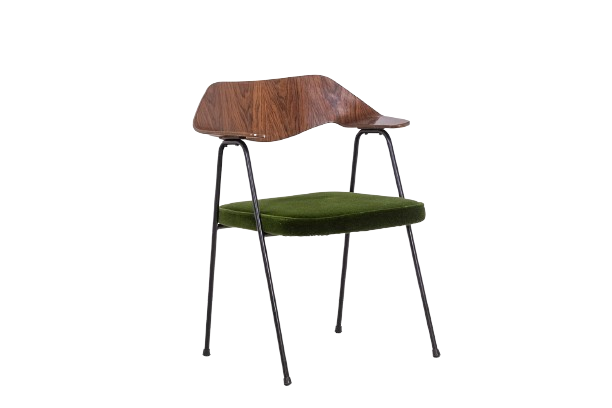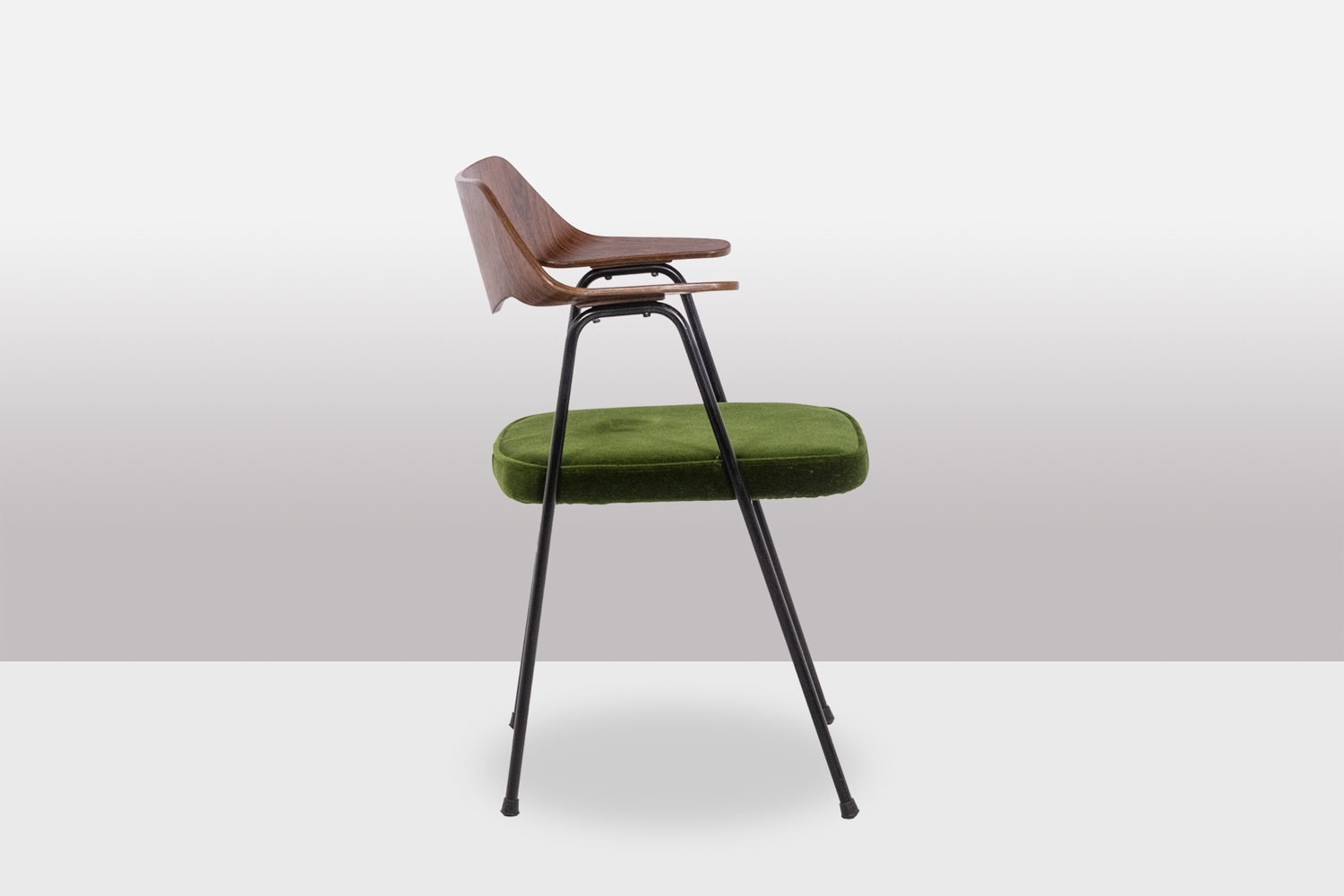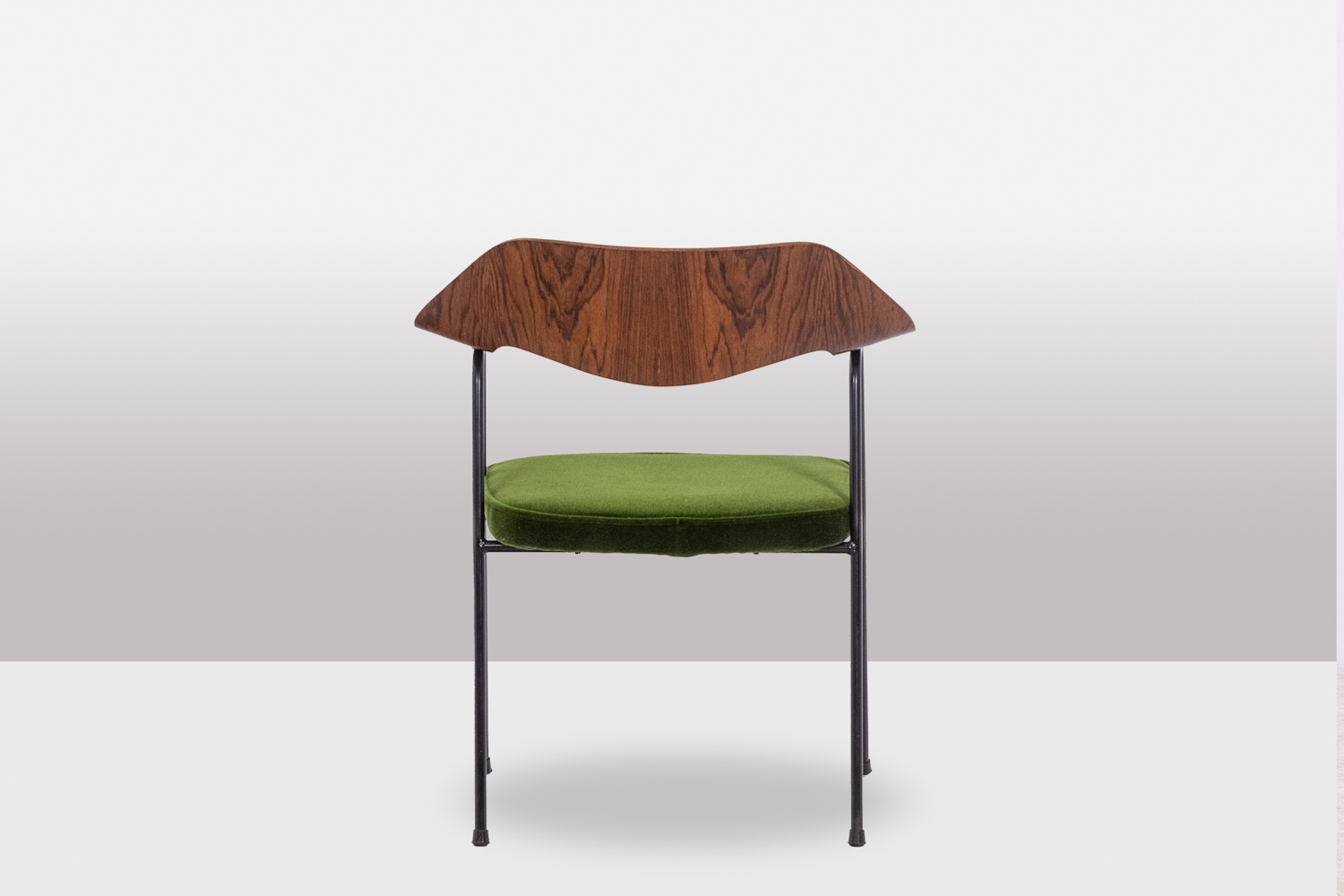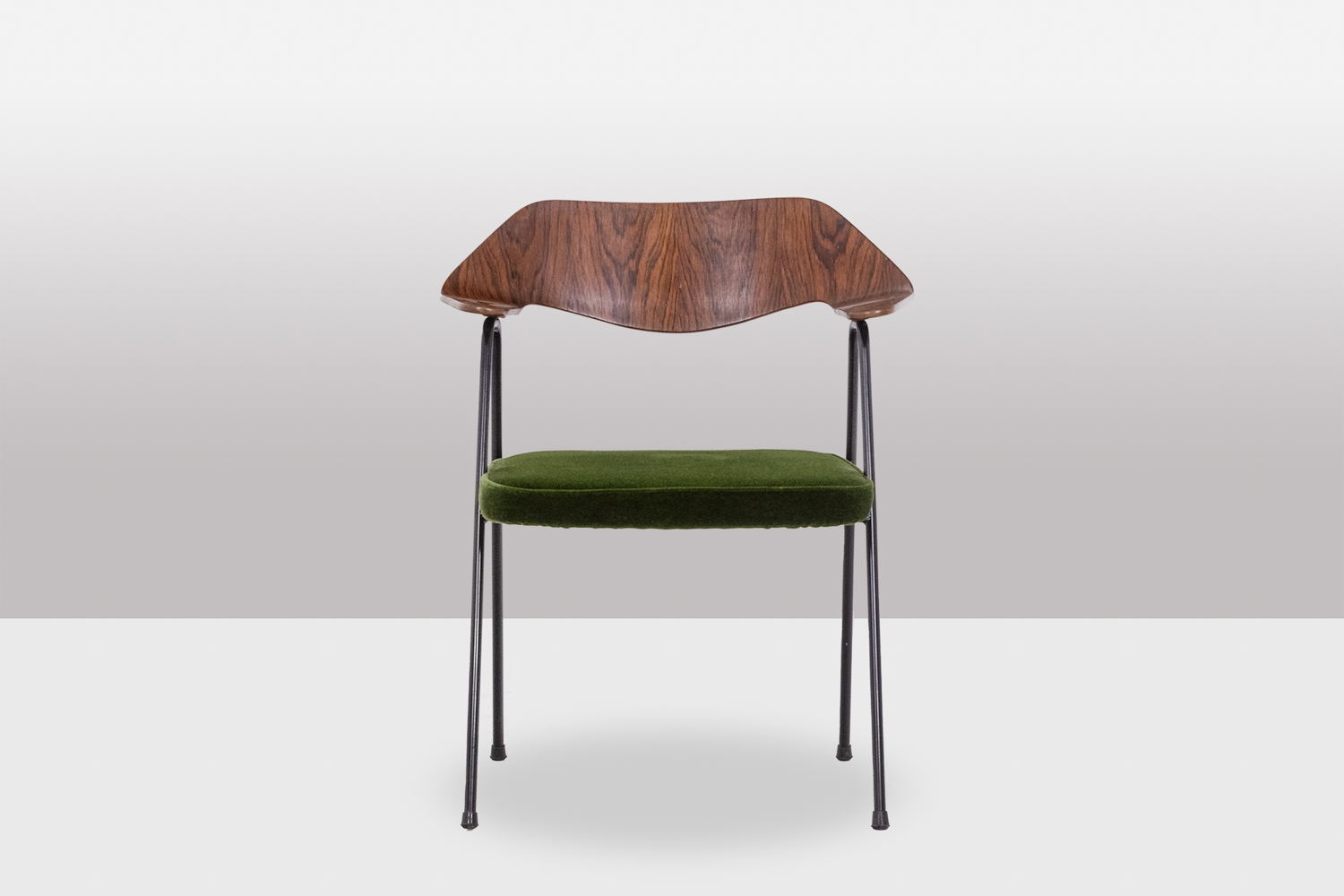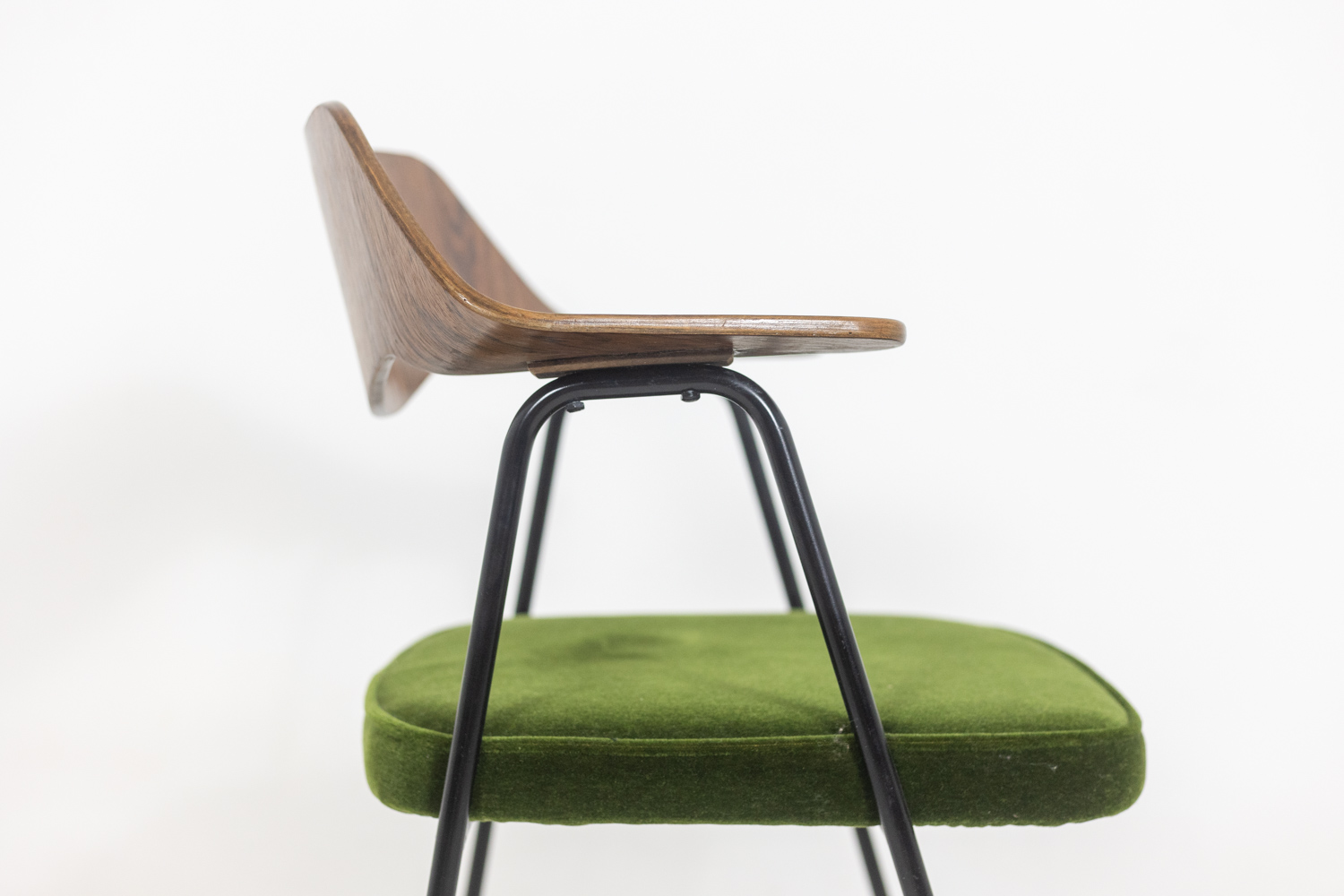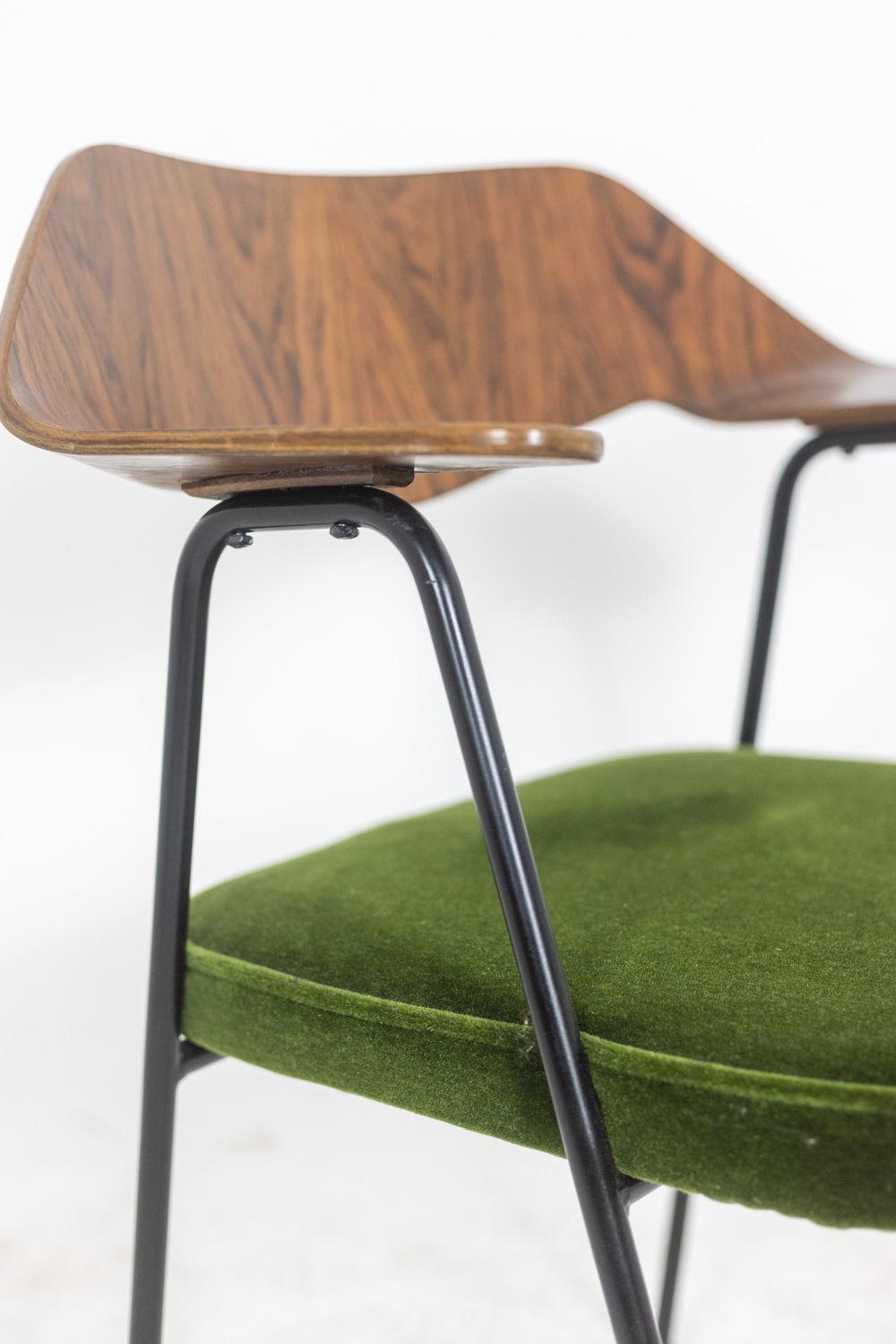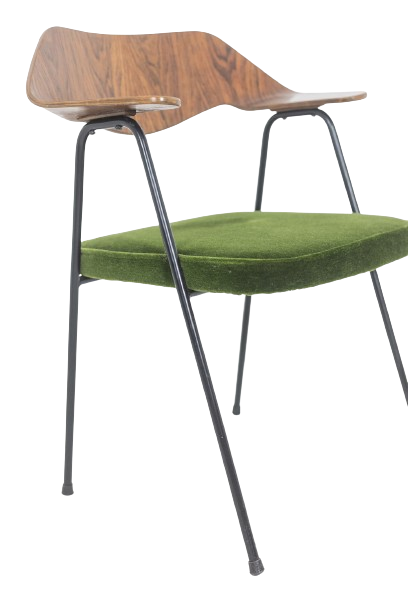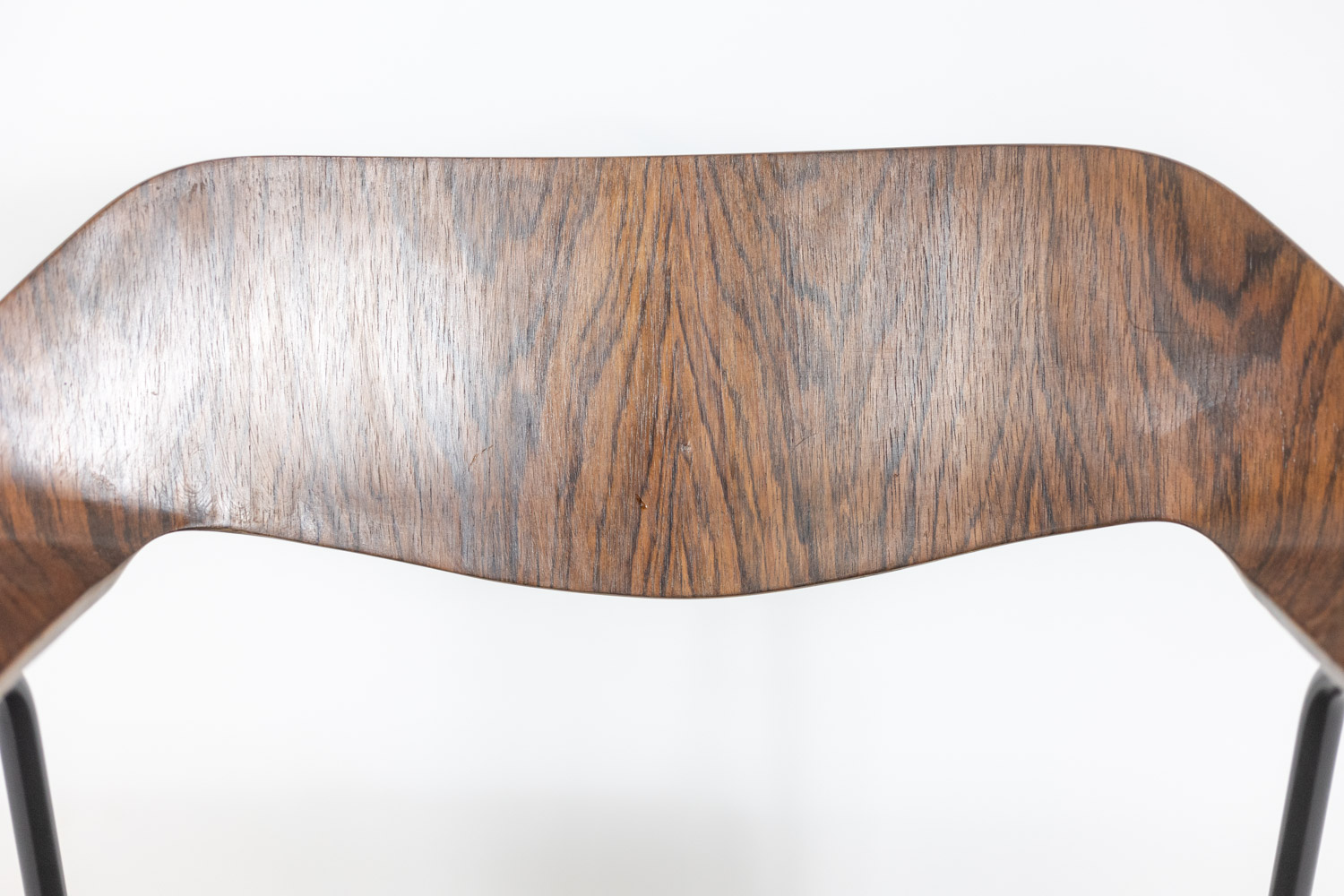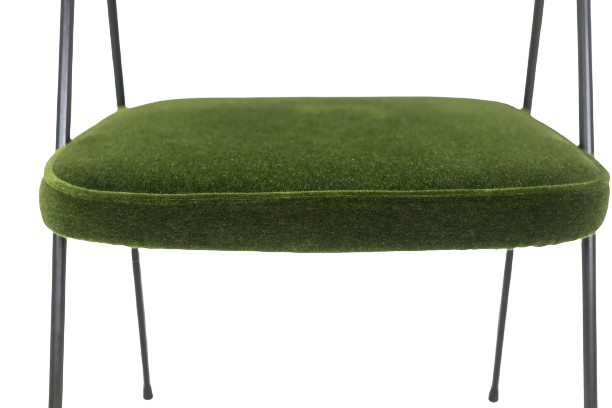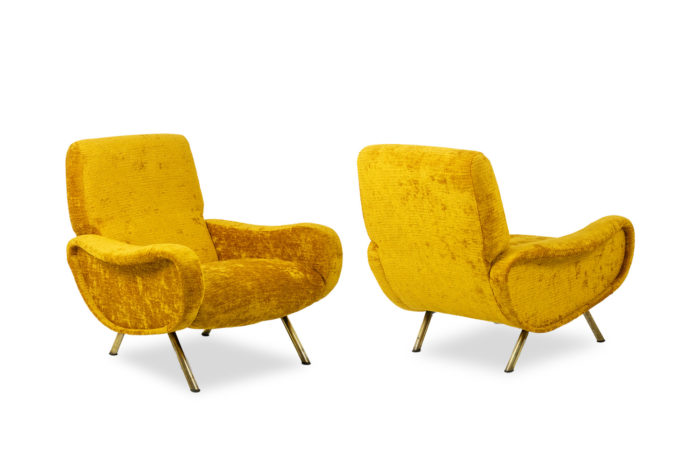Questions ? ![]() : +336.087.843.37 |
: +336.087.843.37 | ![]() contact3@jeanlucferrand.com | Buyer's Guarantee
contact3@jeanlucferrand.com | Buyer's Guarantee

Contact us and request a quote!
![]() : +336.087.843.37
: +336.087.843.37![]() : contact@jeanlucferrand.com
: contact@jeanlucferrand.com
![]() Shipping prices vary regarding destination. Contact us.
Shipping prices vary regarding destination. Contact us.
![]() 14 days free returns. Check out our: Terms and Conditions
14 days free returns. Check out our: Terms and Conditions ![]() |
| ![]()
![]() Question ? Call us +336.087.843.37.
Question ? Call us +336.087.843.37.
Robin Day. Armchair in black metal and curved plywood. 1950s.
1250,00€
Robin Day for Airborne.
“675” model armchair resting on a black lacquered tubular metal base in the shape of an inverted V. High back in molded plywood curved to obtain a curved back extending over the legs to form two curved armrests. Green velvet seat. Work made in the 1950s, designed by Robin Day in 1952. Made up of a backrest and armrests in curved molded plywood, it achieves the feat of bringing them together in a single piece to create a modern, comfortable, minimalist room with fluid shapes.
English work realized circa 1955.
Dimensions: H 68 x W 63 x D 47 cm
Reference: LS5830375U
We have a second armchair allowing us to form a pair!
Robin Day (1915-2010) is an English designer who greatly influenced modern design of the 20th century through the introduction of new materials such as curved wood, metal and plastic. Graduating from the Royal College of Art in 1938, he did not immediately find work and became a professor at the Beckenham School of Art where he developed a 3D design course. He joined forces with designer Clive Latimer and then achieved his first success by winning the MoMA prize in 1948 at the International Competition for Low-Cost Furniture. Arousing the interest of furniture producer Hille & Co., he partnered with him for 30 years and then experimented with new techniques and the use of inexpensive materials making his creations accessible to all. In 1951, he designed the seats for the Royal Festival Hall, which still stands today. During the Festival of Britain he won the highest award: the Chartered Society of Designer’s Minerva Medal for his long-term design projects. Indeed, throughout his career, he worked on an inexpensive, comfortable, mass-produced design while respecting the planet thanks to its durability and reuse. In the new techniques he uses, the work of injection molding will make him famous throughout the world. The Polyprop stackable chair, created in 1963, will become a design icon with its very solid construction, its use of modern materials and its low cost accessible to all. In the 1960s and 1970s, he carried out major design projects such as the furnishing of the refectory of Churchill College in Cambridge, the seats of the Barbican Arts Centre, auditorium seats, theaters, cinemas but also seats and cafe tables. He received the Order of the British Empire in 1983 and became a distinguished member of the Royal College of Art and an honorary member of the Royal Institute of British Architects which rewards people who have contributed to the development of architecture. At the end of the 1990s, the Habitat company reissued some of its creations. But the reissue of Robin Day’s furniture has been managed since 2012 by the Robin and Lucienne Day Foundation, created by their daughter Paula Day.
Contact devis transport / delivery costs :
Telephone / By Phone : +33(0)6 08 78 43 37
Additional information
| Dimensions | 47 x 63 x 68 cm |
|---|---|
| Period | |
| Creator | |
| Material |


